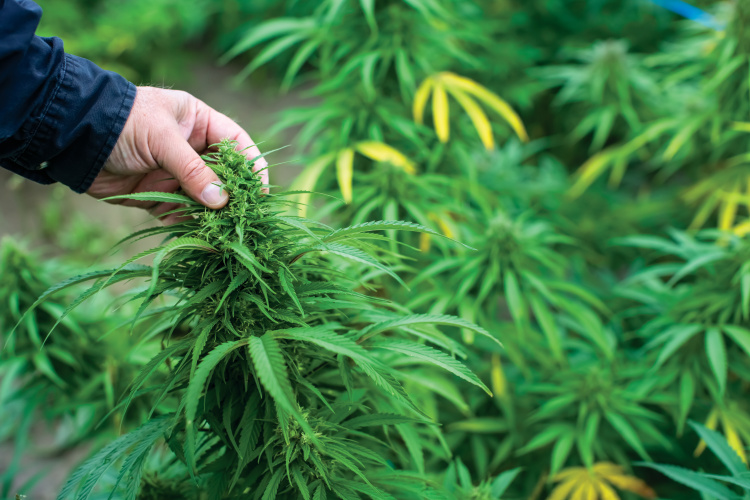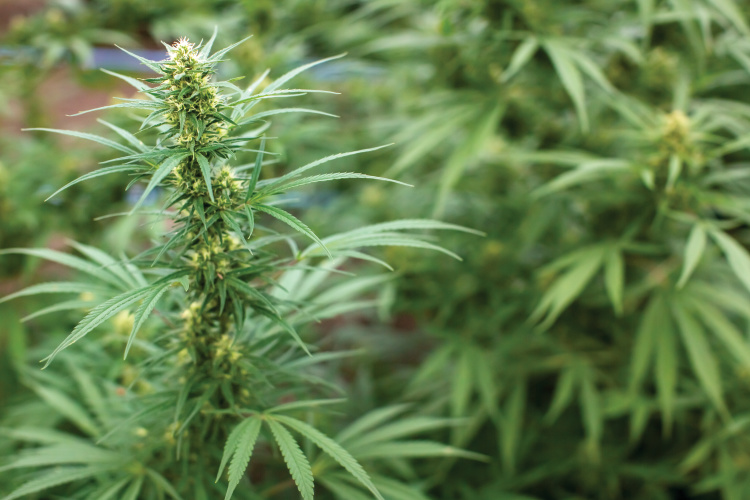Home > Farm > Crops & Livestock > Wisconsin Farmers Grow Hemp for the First Time in 50 Years
Wisconsin Farmers Grow Hemp for the First Time in 50 Years
In partnership with: Wisconsin Department of Agriculture, Trade and Consumer Protection.

After leading the U.S. in hemp production in the early 1940s, Wisconsin is no stranger to the crop, which was primarily grown for rope and fiber due to its strength and durability.
However, after hemp was banned across the nation due to the federal Controlled Substances Act in 1970, it virtually disappeared from the Badger State – until now. Thanks to the 2014 Federal Farm Bill, states and universities were enabled to establish industrial hemp pilot programs.
Today, Wisconsin’s hemp industry is growing as farmers determine the best ways to produce and market what just might be a comeback crop.
Reviving an Industry
Wisconsin’s industrial hemp bill passed in 2017, allowing the state’s farmers to obtain licenses to grow and process the crop through the Wisconsin Department of Agriculture, Trade and Consumer Protection (DATCP). Under the bill, all hemp grown and processed must have a concentration of no more than 0.3% tetrahydrocannabinol (THC), and people with previous controlled substance violations are not eligible to receive a license.
Approximately 245 Wisconsin producers received industrial hemp licenses in 2018, according to Brian Kuhn, director of the DATCP’s Plant Industry Bureau. Of those 245 producers, about 180 actually planted the crop, and another 100 resident individuals received licenses to process industrial hemp.
Those numbers increased substantially in 2019, climbing to a total of 1,247 licensed growers (about 850 of whom planted hemp, growing approximately 5,000 acres across the state) and 556 processors.
See more: 5 Fun Facts About Hemp
Although many Wisconsin farmers originally planned to grow industrial hemp with the goal of extracting cannabidiol (CBD) that’s used in products like oils and salves, the industry has become saturated and prices have fallen nationally. Plus, the state’s weather and soil conditions are actually more ideal for hemp fiber production.
“More than 90% of U.S. hemp production in 2019 was for CBD,” says Dr. Shelby Ellison, assistant faculty associate in the University of Wisconsin-Madison Department of Horticulture. “CBD tends to thrive in a drier climate, but hemp fiber, which comes from the stalk of the plant, is actually a better fit for Wisconsin because it requires more moisture.”

Farming for the Future
Much is still unknown about hemp and its potential in the marketplace in Wisconsin and beyond. As a result, Kuhn encourages farmers to err on the side of caution, recommending they start small and experiment with the crop before committing to a significant investment.
“I tell farmers to ensure they have a market before they decide how much hemp to plant,” Kuhn says. “This crop is like no other crop because of the regulations surrounding it and the potential losses incurred if it’s not harvested in time. If hemp becomes too ‘hot,’ or the THC content is too high, it must be destroyed.”
Despite the concerns, many industry experts believe industrial hemp has the potential to become a core crop for Wisconsin growers.
See more: Farmers Experimenting With Hemp Hope for Success
Dr. Paul Mitchell, professor of agricultural and applied economics at the University of Wisconsin-Madison, says there’s a possibility Wisconsin-grown hemp could be used as cattle feed in the future, as the crop is high in protein and a variety of fatty acids. He also predicts the state’s growers may be able to tap into smaller niche markets for hemp via local processors and distributors as the industry continues to grow and evolve.
Hemp fiber may find a place in automotive, paper and plastics industries – depending on the findings of research that’s currently underway – which would create even more opportunities for growers and processors.
“Wisconsin farmers are highly skilled and have a lot of experience with specialty crop production, and hemp certainly falls into that category,” Dr. Ellison says. “It’s safe to say industrial hemp will have a place in the state’s agriculture industry moving forward.”



